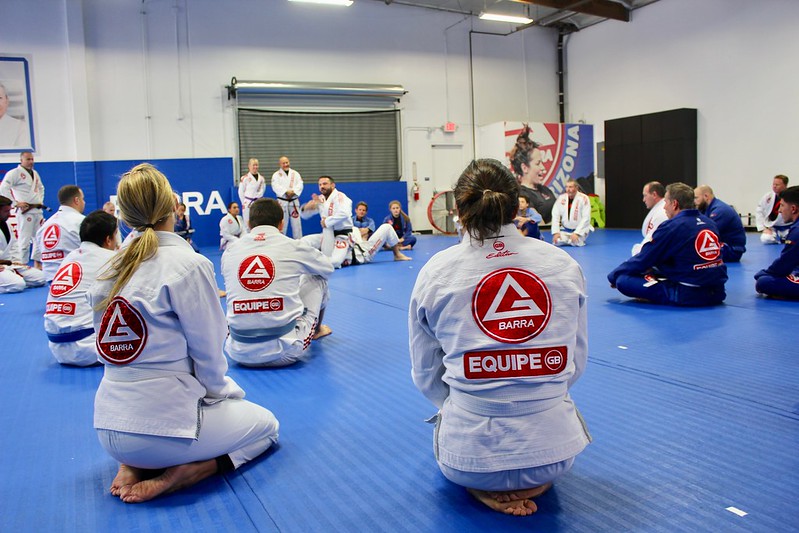GB Student Question: “Is it okay to ask questions in class?”

This question comes up fairly often despite seeming to be an obvious “yes, of course, you can ask questions”.
ㅤ
Why should there be any questions about…well… questions?
ㅤ
There are a couple of reasons why many students are hesitant about asking questions.
ㅤ
Have you checked out the GB Online Instagram account?
https://instagram.com/
ㅤ
1- “Ya, but what if my opponent does this?” This situation is when the instructor is showing a move to the entire class and a student’s arm shoots up in the air and they immediately ask about the opponent countering the move.
ㅤ
This type of question can be seen in a negative light if the student doesn’t have a lot of experience and hasn’t even tried the initial move yet and they are already thinking about how it can be easily countered. In fairness, this student should try the move that is being shown first and see and feel how the move works. Then, and only then, are they ready to start talking about the possible counters to that move? Try the move first before asking your question about stopping the move.
ㅤ
The truth is that ALL of the moves in Jiu-Jitsu have counters. If there was a perfect, unstoppable move in Jiu-Jitsu, we would just teach that one move and it would be a short class!
ㅤ
That said, it is perfectly okay to ask WHY the move works and how the opponent will try to defend your moves. That’s why Jiu-Jitsu is so often compared to kinetic chess. There is a back and forth of trading of techniques and counters between training partners in a roll. Asking WHY a move works and exploring the ways that the opponent can defend and counter only deepens our understanding of the technique.
ㅤ
So in this case, before you immediately question the counters and possible escapes from the position, TRY the original movie first!
ㅤ
2- It’s not good form to question the teacher in many cultures.
In many cultures, it is perceived as disrespectful for a student in any setting to question the teacher about the material being presented. The students are expected to keep silent and make their notes.
The problem with this is that a student will have a perfectly valid question, but keep it to themselves for fear of appearing rude.
ㅤ
Jiu-Jitsu instructors LOVE sharing their knowledge of the art and the vast majority will eagerly answer a curious student’s questions.
ㅤ
One instructor I had addressed the class and openly encouraged the students to ask questions. “When the student asks a question, it shows that their mind is in the class and that they are thinking about the technique!”
ㅤ
The more advanced a Jiu-Jitsu student becomes, the less they rely on the formal instruction in the class for their learning. Their learning starts to come from taking the material from class, experimenting with it during rolling, and then coming back to the Professor with any problems they may have encountered. It’s a trial, feedback, correction process.
ㅤ
Don’t be shy to ask questions in class. It shows your instructor that you are genuinely focused on what is being taught and is the best way for you to deepen your understanding of the material being presented.
ㅤ
See also on GB Blog: GB Inspiration: Prof. Flavio Almeida on overcoming struggles
ㅤ
Writer: Mark Mullen, Gracie Barra Black Belt
